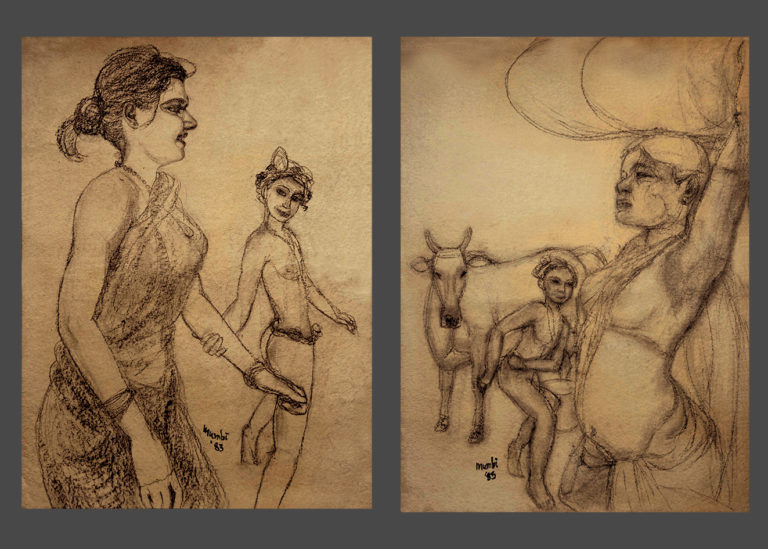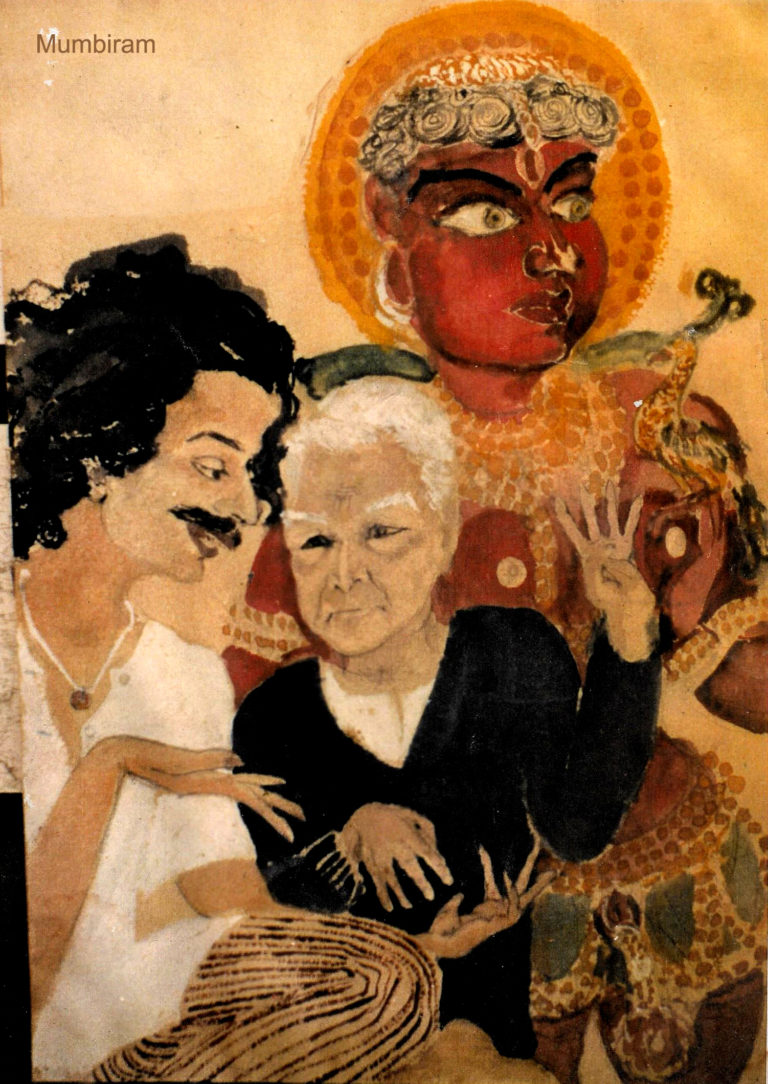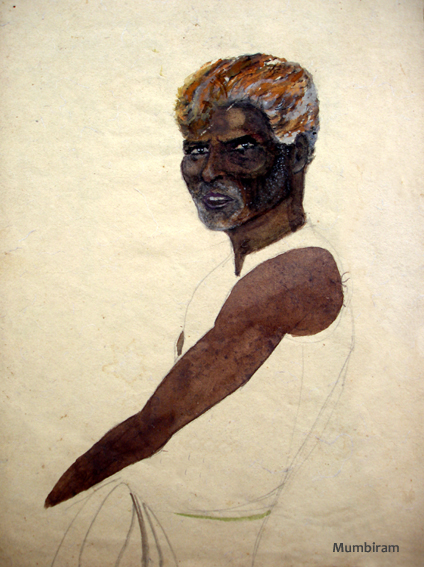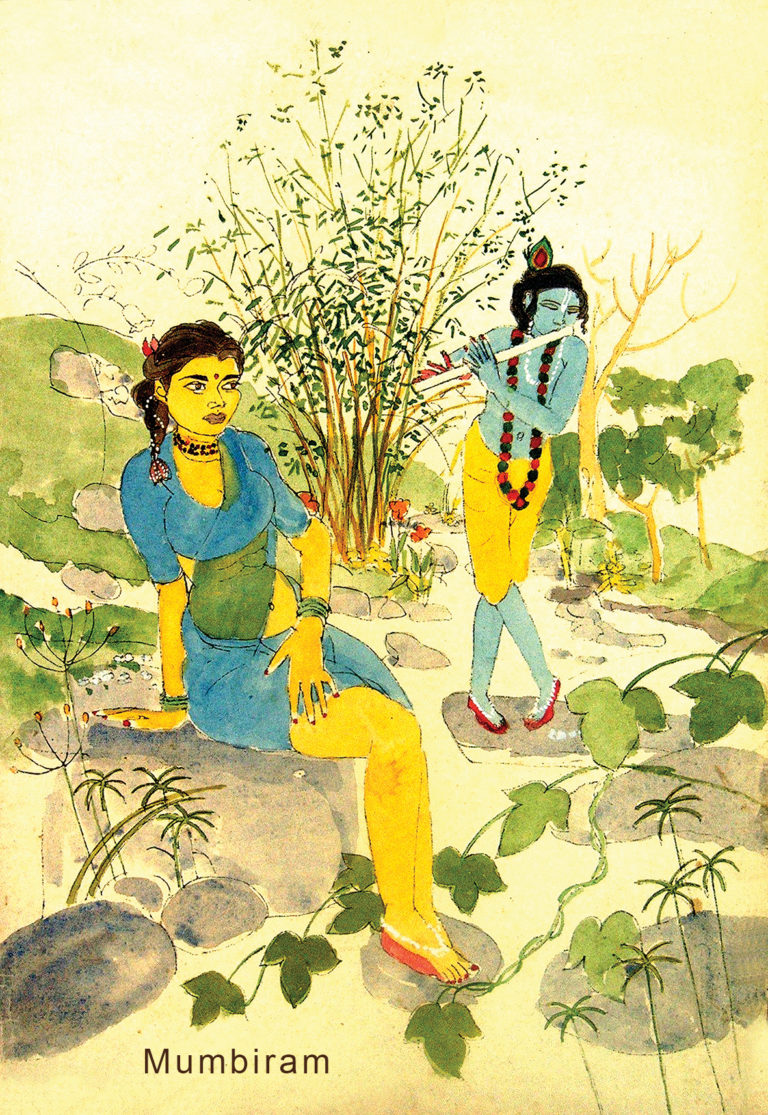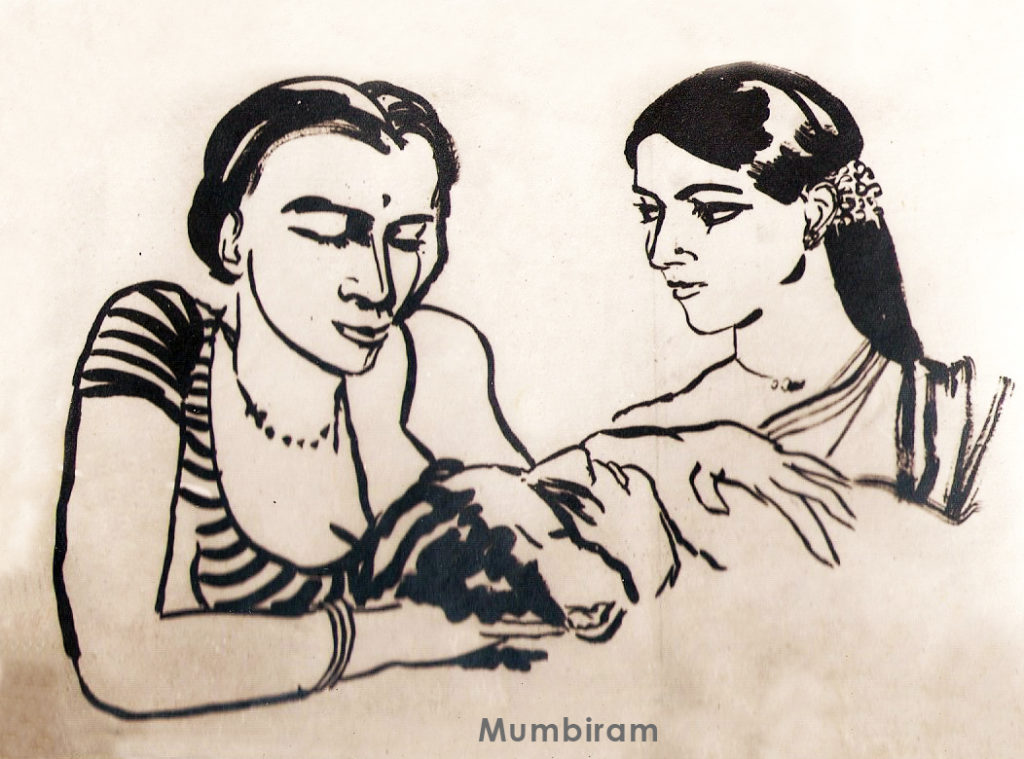
Mumbiram made this exquisite ink and brush rendering in the 80’s when he was making screen prints of such monochrome renderings. It is exquisite because through versatile use of a single brush the artist has depicted two women friends of the dead artist whom we see in the foreground. The sari clad woman on the right is looking at the woman who is caressing the dead man’s head. Both women are handsome in a distinct unique way. The viewer’s imagination is allowed to take wings speculating about the many possible ways the two may be involved in the artist’s life.
This is a screen-print in black ink on off-white rag-content hand-made paper produced in the famous Hand Paper Institute of Pune.
We are going to narrate how and why Mumbiram was inspired to inscribe on another print of this same rendering some lines of a poem by poet Lok Kavi Manmohan.
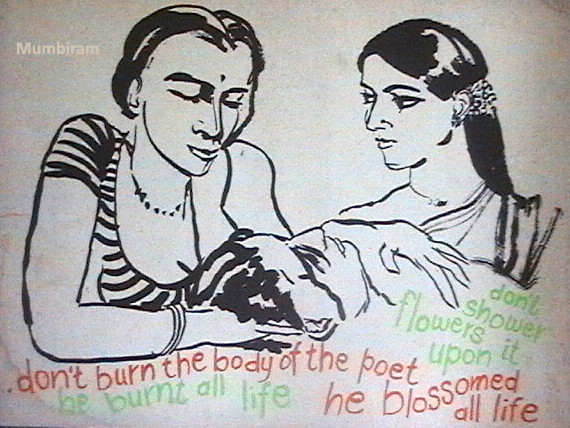
Here we have another print of “Two Friends of the Departed Artist” on which Mumbiram has painted with a brush two lines of this poem by Manmohan. In Marathi these lines were:
शव हे कवीचे जाळु नका हो ! जन्मभरी तो जळतचि होता !!
फुले तयावर उधळू नका हो ! जन्मभरी तो फुलतचि होता !!
Mumbiram translated these lines into English as:
Please don’t burn the body of the Poet !
He was burning all his Life !!
Please don’t shower flowers upon it !
He was blossoming all his Life !!
None of Mumbiram’s paintings are made as illustrations to a literary composition. Many times they invoke the same spirit as some distant great literary composition. Mumbiram rejoices in such coincidences as much as we do. Mumbiram thought very highly of some of Manmohan’s poems.
Two comparable poems come to mind. One is poet laureate Lord Tennyson’s “Home they brought her warrior dead” and the other is Robert Browning’s “Grammarian’s Funeral”. The one stanza of Manmohan’s poem quoted here is very Indian, very special. When bodies are taken in procession to the cremation ground everyone shows their love and respect by offering flowers. Here a passionate admirer is pleading us to neither shower flowers on the body nor burn it.
This clearly is the utterance of some one who not just admired the dead poet’s poems but adored the poet himself and even everything about the poet, including his body. In the science of Love of God, at the highest state of intimacy there is a convoluted state of emotions called Prema Vivarta. In that state one experiences transcendental deja-vus that exhibit paradoxical emotions. The sentiment expressed in Manmohan’s poem fits Mumbiram’s rendering of the two women with their artist’s body.
He was burning all his Life !!
He was burning as a guiding enlightening Lamp. Or he was burning with Passion. Therefore, burning his body is not a fitting response of appreciation. (But then what should be done with his body?)
He was blossoming all his Life.
